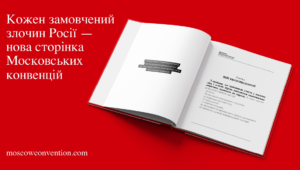Impact of full-scale war: Research shows Ukrainians read more daily

Experts analyzed the impact of Russia's full-scale war on the reading habits of Ukrainians and found the number of citizens who started reading daily increased.
What is the problem?
Ukrainians are often accused of reading little, especially compared to residents of other countries.
For example, the study "Reading in the Context of Media Consumption and Life Design" from 2020 showed that Ukrainians read books during leisure time less frequently. In 2018, 11% claimed to read every day, while in 2020, only 8% of the adult population read daily.
The share of Ukrainian readers aged 18 and over who read at least once a week was 19%, compared to 67% of Canadians, 60% of the French, and 53% of Icelanders, as shown by a report by the International Association of Publishers.

Presentation of the Info Sapiens study / Photo from the Facebook page of Ukraine Media Center
What is the solution?
The Info Sapiens agency, commissioned by the Ukrainian Book Institute and supported by the Renaissance International Fund and NGO Publishers Forum, conducted a study on the impact of the Russian invasion on reading in Ukraine.
The research was conducted in August-September 2023, with more than 2,000 respondents from all over Ukraine, except for the Russian-occupied territories. The results were presented on October 12.
How does it work?
"My hypothesis that Ukrainians began to read less after the Russian invasion was not confirmed. Ukrainians began to read significantly more," said Oleksandra Koval, director of the Ukrainian Book Institute. "This study should be taken into account when building a state policy in promoting and supporting reading and book publishing."
According to the study, the share of people who use daily reading as a form of leisure will increase to 17% in 2023, compared to only 8% in 2020.

Screenshot from the presentation of research results
Anastasia Shurenkova, head of the socio-political research department of the Info Sapiens agency, said the research was focused specifically on leisure reading. When it comes to spending their leisure time, Ukrainians prioritize activities such as reading news in messengers, scrolling through feeds, and engaging in social media conversations — which, technically, also involve reading — by a significant margin.
As for reading books, 16% of respondents read every day, 18% several times a week, and about a third of the audience never reads. But a third of Ukrainians never read even in previous years, while the share of Ukrainians who read more often increased significantly.
In 2023, Ukrainians read more printed books than electronic ones, so the share of e-reading and audiobooks is also growing. Supporters of only printed books have halved, and people have expanded their reading menu.

Screenshot from the presentation of research results
Most often, the age group from 30 to 39 has bought printed books. Among the genres, respondents most often said they read modern novels, fiction, and books on psychology and self-development.
"Stephen King was most often mentioned among the authors of the last book Ukrainians read," said Shurenkova.

22% of respondents said they purchased from one to four books in 2023, and 12% purchased from 5 to 12 books, said Info Sapiens sociologist, Candidate of Sociological Sciences Liudmila Yuzva.
41% of people buy books in specialized bookstores, including in shopping and entertainment centers, and 22% shop on the websites of bookstores and publishers.

A presentation slide that shows which language people are more comfortable reading, in time dynamics
A significant majority of Ukrainians — 54% — have become more comfortable reading in Ukrainian, Liudmila Yuzva said.
For children, reading as a pastime is significantly inferior to games and talking with friends, but the share of children who read books has increased in all segments — daily, weekly, and monthly readers. Boys read less than girls. Children who never read in their leisure time decreased by three percent, from 18% to 15%.
"We have to support bookstores. The state should contribute," said acting Minister of Culture and Information Policy Rostyslav Karandeev. He added that the government was planning on measures to support the reading of printed books by a younger audience.

"We have to read a lot today because we not only have to win but also to rebuild Ukraine," said Oleksandr Afonin, president of the Ukrainian Association of Publishers and Book Distributors. He pointed out that the government should support book publishers better, like in many other countries. He also said libraries needed to be financed to purchase books. In his opinion, people began to turn to libraries less — this was shown by research — not because they do not want to, but because there are not enough resources.
Author: Olha Stukalo























































